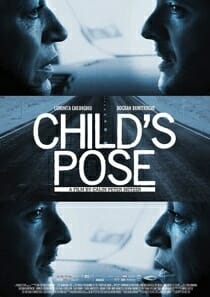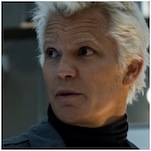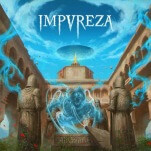Child’s Pose

Though it may have lost some of the white-hot critical faddishness it enjoyed in the mid-2000s, Romanian cinema remains one of the new century’s most consistently rewarding national movements. The Death of Mr. Lazarescu and 4 Months, 3 Weeks and 2 Days are still its high-water marks, but there’s been no shortage of superb follow-ups in recent years, including Beyond the Hills and Tuesday, After Christmas. What these films share is a barebones depiction of modern life—usually rendered over the course of a few days or less—through plots that are deceptively simple and actors whose well-worn faces are so descriptive that they silently convey a world of regret and discontent.
Child’s Pose could almost be a “greatest hits” of Romanian tendencies, but its distinctive resonance is such that it transcends familiarity. As with the best of his countrymen’s films, director and co-writer Calin Peter Netzer’s family saga possesses all the sharp everyday detail, close-quarters drama and nuanced characters of a terrific play. But as is also often the case with Romanian cinema, Child’s Pose elevates the commonplace with superb, almost invisible filmic technique, staring at its characters with such intensity that the ordinary becomes surprising and insightful.
The film stars Luminita Gheorghiu—a veteran of The Death of Mr. Lazarescu, 4 Months, 3 Weeks and 2 Days and others—as Cornelia, a middle-aged, upper-crust architect who spends most of her time attending society functions when she’s not busy complaining about the fact that her son Barbu’s girlfriend isn’t good enough for him. But her comfortable life is soon rocked by news that Barbu (Bogdan Dumitrache) has killed a pedestrian with his car. On some level, Cornelia knows that her son is a good-for-nothing loser, but she quickly springs into action to defend him, strategizing how she can help him avoid jail time.
It’s not noteworthy that Child’s Pose explores the upsetting lengths that a mother will go to look out for her son: The Deep End, Bong Joon-ho’s Mother and Andrey Zvyagintsev’s Elena all got there first. But what makes Netzer’s film striking is how ambivalent it is about its characters’ behavior. We’re used to films that have a dispassionate view of our morally bankrupt times, but Netzer’s drama is subtler and more troubling than that: Here’s a movie in which the participants’ motivations aren’t always clear, not even to themselves.
-

-

-

-

-

-

-

-

-

-

-

-

-

-

-

-

-

-

-

-

-

-

-

-

-

-

-

-

-

-

-

-

-

-

-

-

-

-

-

-








































